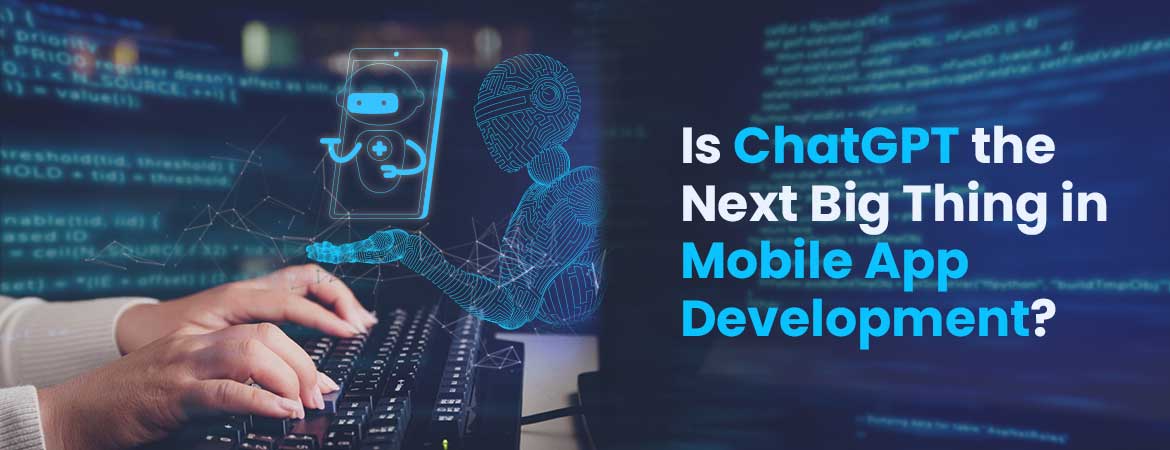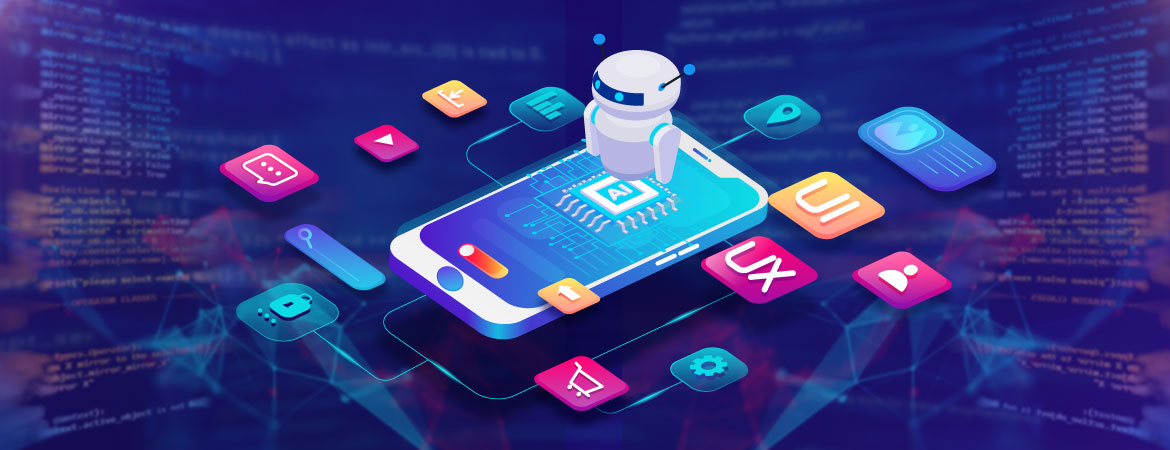
We use cookies to ensure that we give you the best experience on our website.
By using this site, you agree to our use of cookies. Find out more.
This blog post will discuss the ChatGPT shows promise for helping with certain tasks in mobile app development like code generation, research assistance, and ideation support, it is still far from replacing the skills and expertise of human developers

ChatGPT has taken the world by storm as one of the most powerful conversational AI systems. It is impressing users with its human-like responses and capabilities. This blog discusses whether ChatGPT could be the next big thing in Mobile App Development and the technology's potential, limitations, and challenges. ChatGPT is an AI assistant created by OpenAI that allows users to conduct a conversation. It also helps discuss any topic by typing in plain English.
After being released in November 2022, the app quickly gained popularity for its ability to provide helpful information, answer complex questions and even generate code samples in multiple programming languages. It includes languages used for mobile app development like JavaScript, Swift, and Java. While ChatGPT shows promise for assisting with app development tasks like prototyping ideas, researching information, and generating boilerplate code, there are still challenges around safety, bias, and reliance that must be addressed before conversational AI fully transforms the mobile app development workflow.
Conversational AI has seen rapid growth and innovation in recent years, enabled by advances in machine learning and natural language processing. Tools like ChatGPT are part of a new wave of massive AI language models trained on enormous datasets. They can converse more naturally and human-like than ever before. As these "large language models" improve, they are helping fuel the rise of conversational AI systems in various applications.
The demand for conversational AI services is high due to many benefits. It includes convenience, immediacy, and ease of use. People have grown accustomed to having basic questions answered instantly through services like Siri, Alexa, and Google Assistant. Businesses see the potential for conversational AI to improve customer service, employee productivity and automate repetitive tasks. Every major tech company from Amazon to Google to Microsoft now has a stake in developing conversational AI. It will also help power their platforms and services.
The technology has grown past simple question-answering to encompass increasingly complex conversational capabilities. Early chatbots were narrow in scope but modern conversational AI systems can handle a vast array of topics. It generates responses that incorporate context from the ongoing conversation and even negotiates and corrects itself along the way. ChatGPT and other similar tools represent the current frontier of what is possible with conversational AI. It opens up new possibilities for a wide range of industries. However, issues around safety, bias, transparency and reliance still need to be resolved for conversational AI systems. Then it can have a broad impact and become fully integrated into our digital lives.

ChatGPT is an AI assistant created by OpenAI that allows users to conduct a conversation or discuss any topic by typing in plain English. After being released in November 2022, the app quickly gained popularity for its ability to provide helpful information. ChatGPT could potentially assist with various aspects of mobile app development. It includes prototyping ideas, researching information, generating boilerplate code, and suggestions for implementations.
Developers have been testing ChatGPT for app development tasks such as describing the functionality of common app features. It can also help in explaining code snippets, providing examples of API calls, and generating starter code for functions, classes, and more. For example, a developer could ask ChatGPT "How would I create a login screen in an Android app?" and it will respond with sample Java code and details on necessary libraries, layout files, and activities. However, the generated code still needs to be reviewed and optimized by an experienced developer.
While showing promise to augment the work of developers, ChatGPT app development capabilities are still fairly limited. It struggles with complex tasks and nuanced requirements and suffers from the same safety, trust, and bias issues. It comes with any conversational AI system. As the technology matures and is integrated with existing tools, ChatGPT and similar AI assistants could play a role to complement - not replace - human developers by automating routine work and generating starting points for projects. However, plenty of challenges remain before this vision is fully realized at scale.
Here are some key advantages of ChatGPT in mobile app development:
Here are some key challenges and considerations for ChatGPT in mobile app development:
The future of ChatGPT in mobile app development likely involves:
While ChatGPT shows promise for helping with certain tasks in Mobile App Development like code generation, research assistance, and ideation support, it is still far from replacing the skills and expertise of human developers. The responsible use of conversational AI like ChatGPT will likely involve integrating these tools to augment, not substitute for, the work of professionals. As issues around safety, bias, transparency, and reliability are addressed, ChatGPT and similar systems have the potential to gradually transform certain aspects of the mobile development process over time.
However, skilled human developers who understand the nuances, complexities, and limitations of the technology will continue to play an essential role in imagining and building high-quality mobile apps. Conversational AI can best serve as a complement to, rather than a replacement for, the creativity, foresight, and craft of human developers. While ChatGPT may assist with some routine tasks in mobile and web development, true innovation will still require the ingenuity and expertise that only people can provide. Therefore, while conversational AI tools like ChatGPT represent an important step forward, human developers will remain at the center of designing and building the next generation of mobile and web applications.
Leave a Comment
Your email address will not be published.